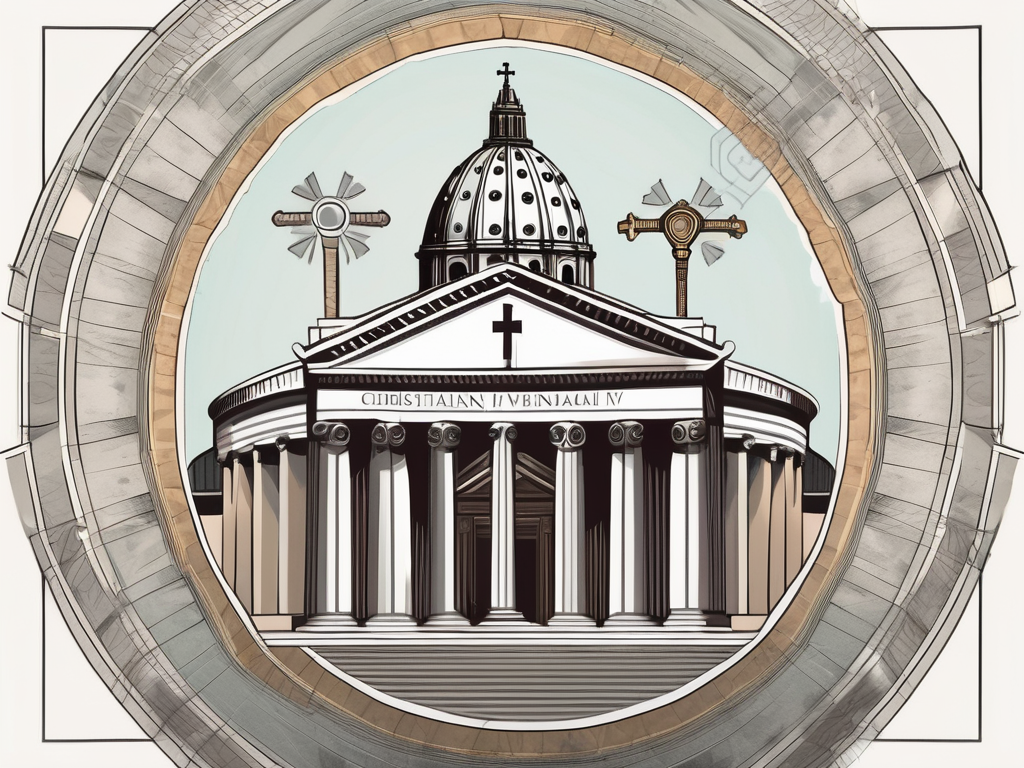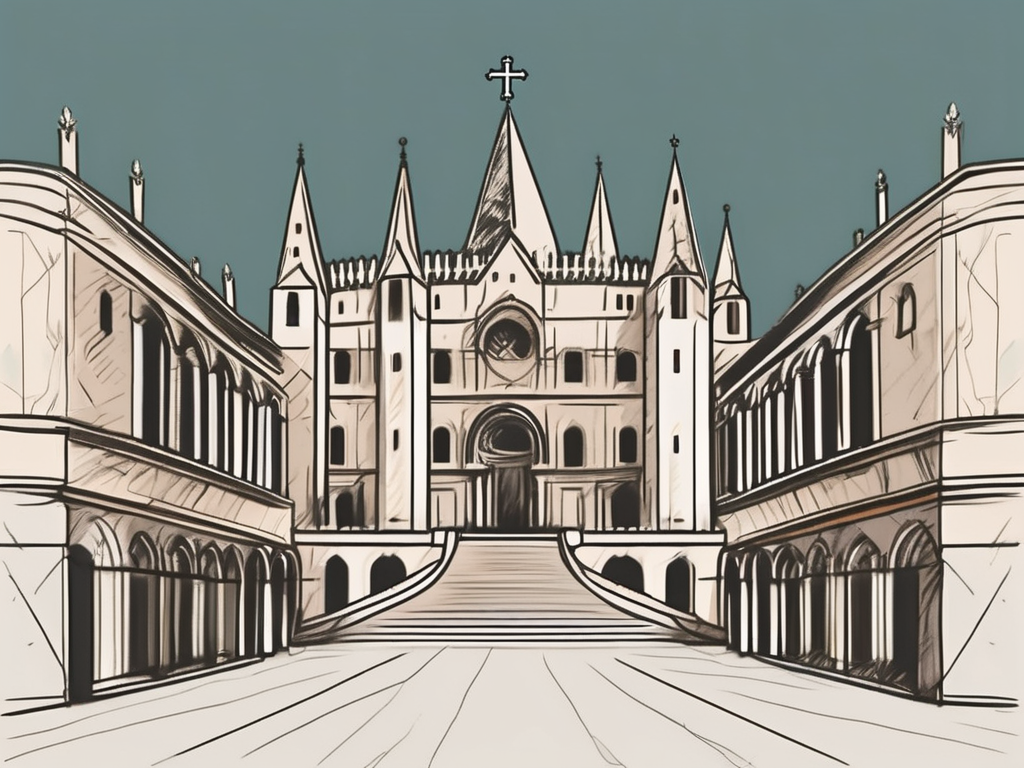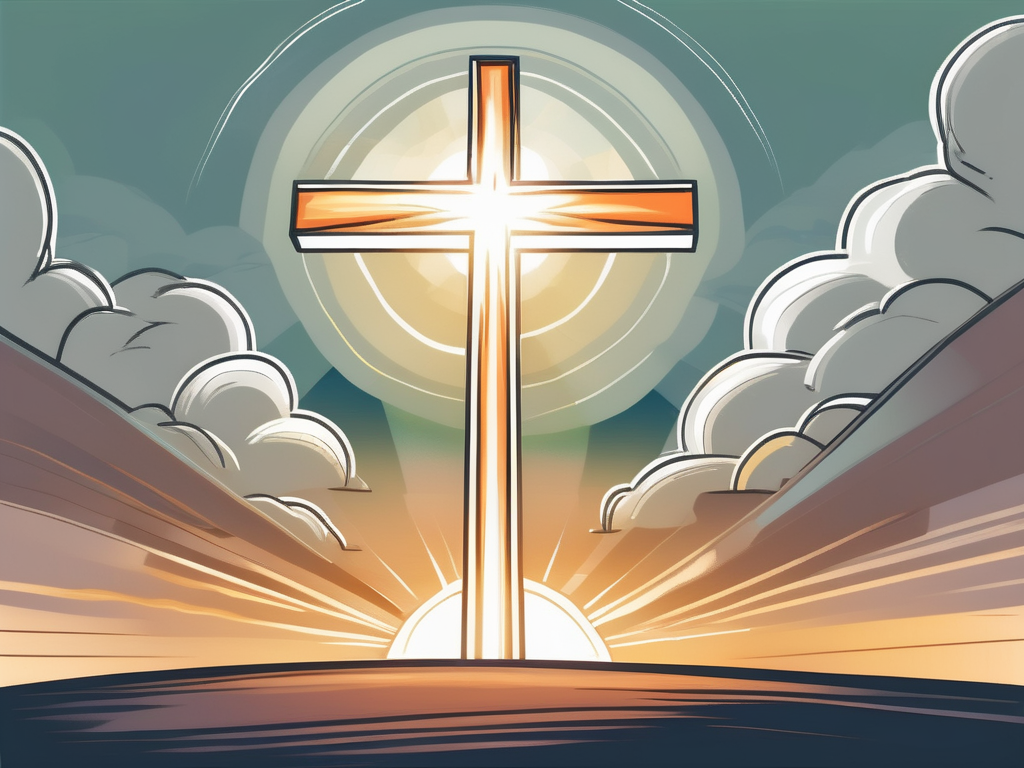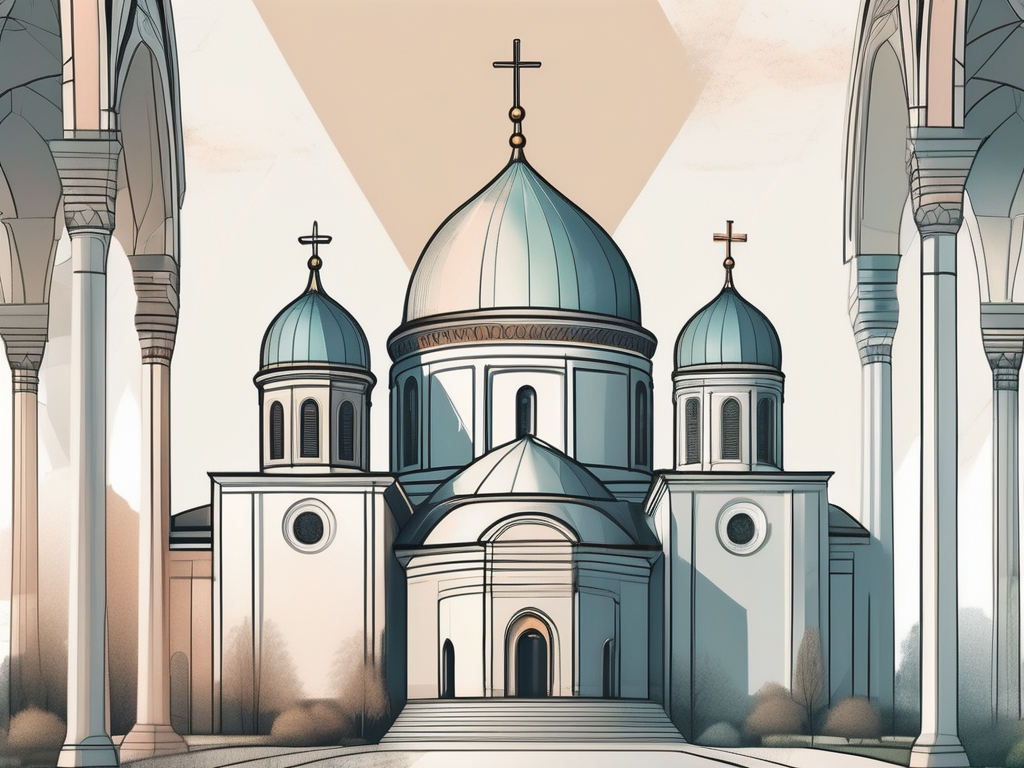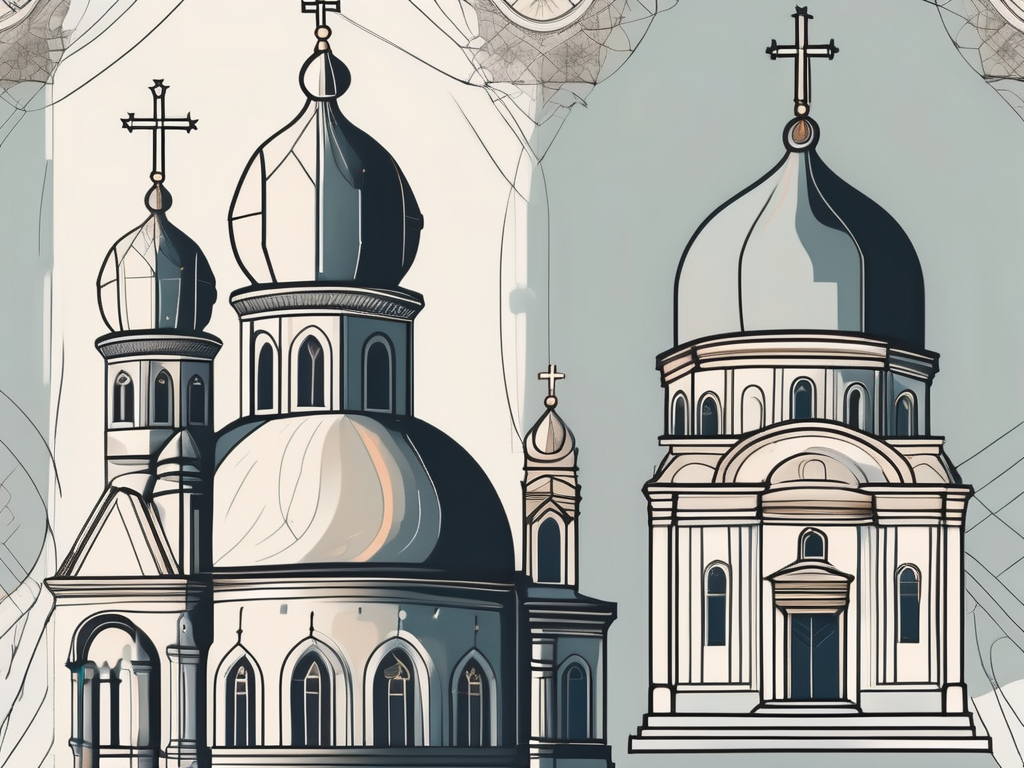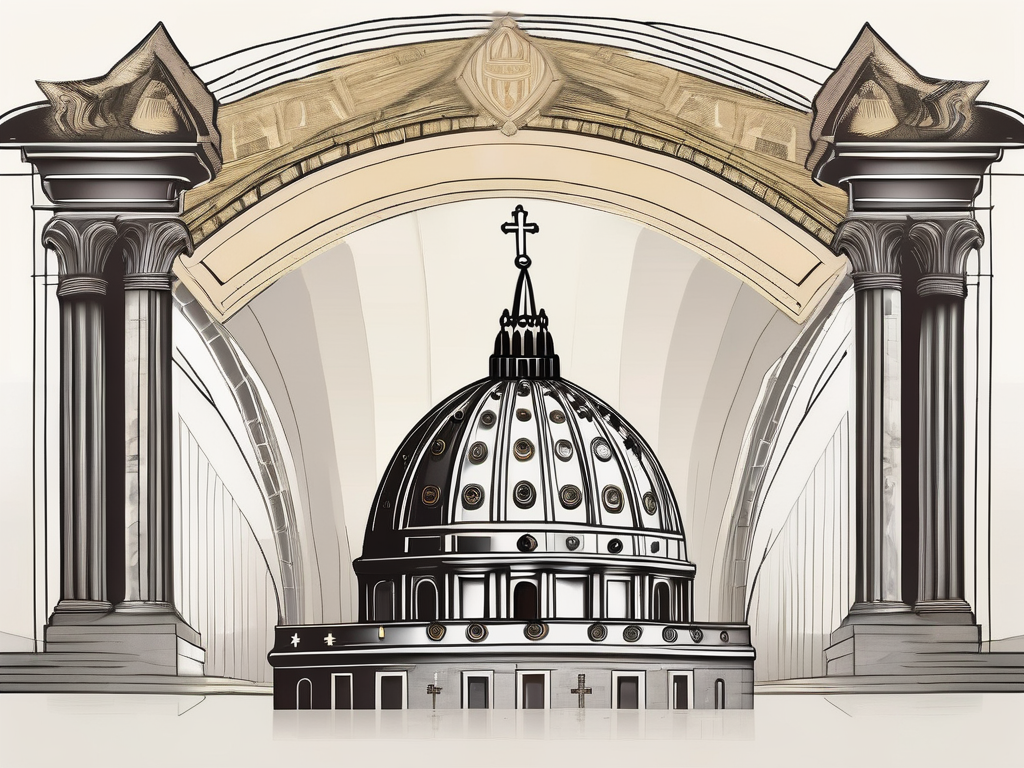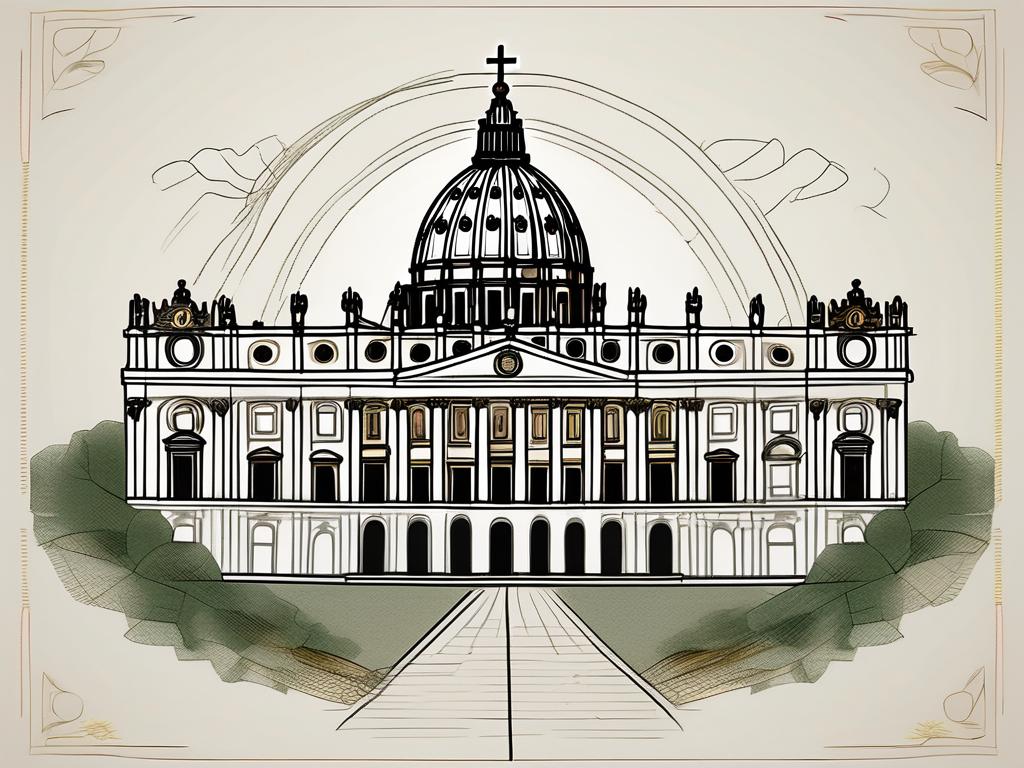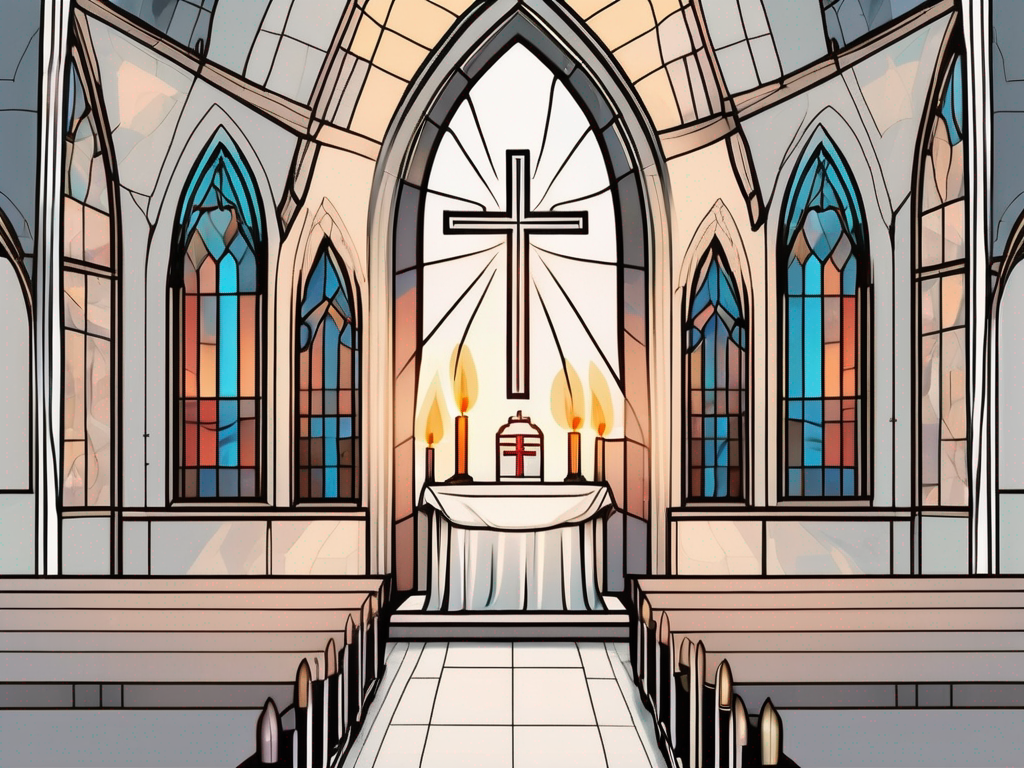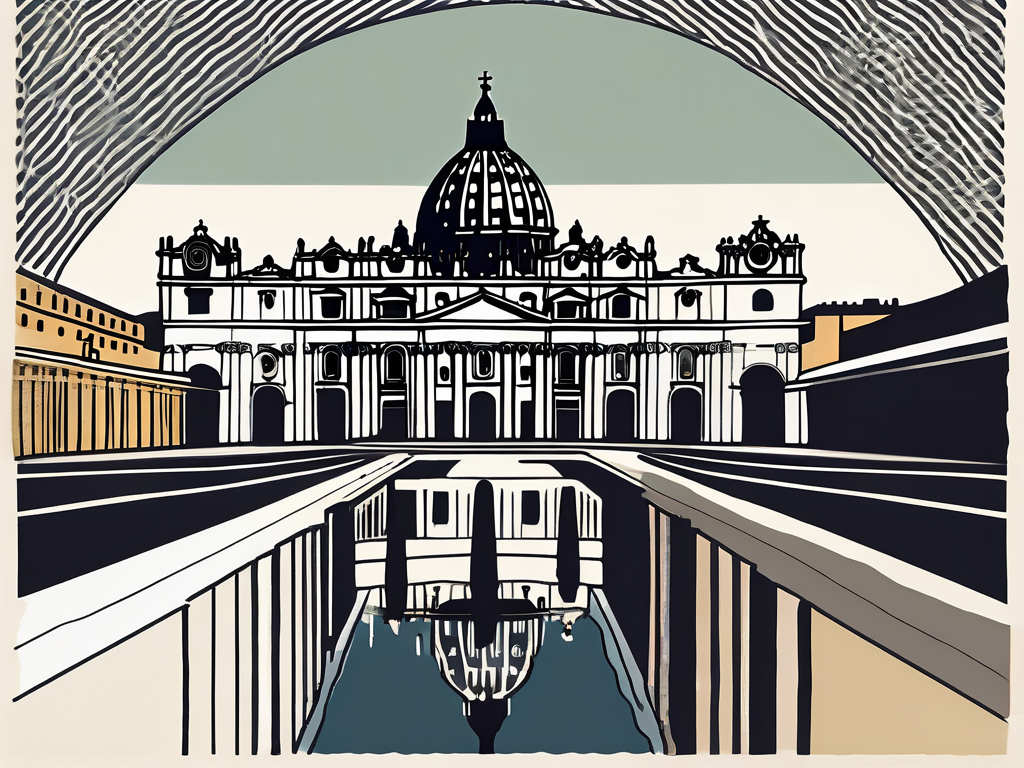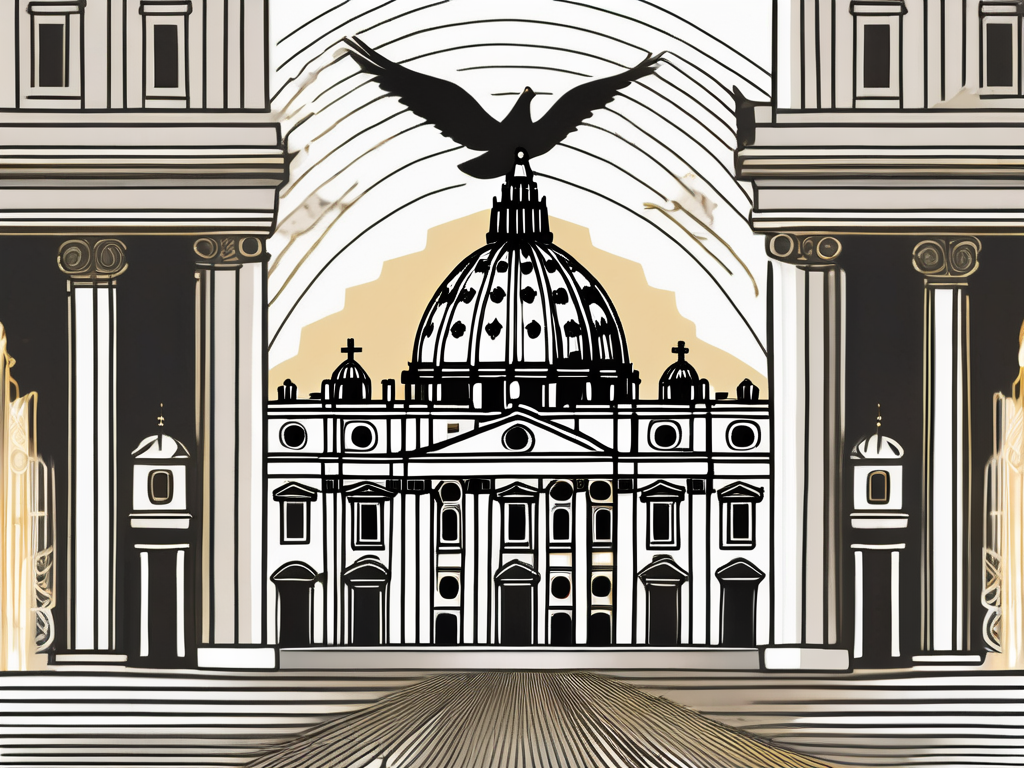In this article, we will delve into the fascinating life and lasting influence of Pope Boniface IV. From his early years to his significant contributions and controversies as Pope, we will explore the various facets that shaped his role in the history of the Catholic Church.
Early Life and Education of Boniface IV
Let’s first take a look at the formative years of Pope Boniface IV. Born into a devout Christian family, he was raised with a strong foundation of faith and moral values.
Birth and Family Background
Boniface IV was born in Rome, Italy, in the year 550. Coming from a family with a rich religious heritage, his parents instilled in him a deep reverence for God and a commitment to serve others.
His father, a respected clergyman, dedicated his life to spreading the teachings of Christianity and played a significant role in shaping Boniface IV’s spiritual journey. His mother, known for her unwavering devotion to prayer and acts of charity, served as a role model for the young Boniface IV.
Religious Education and Training
Under the guidance of his parents and influential religious figures of his time, Boniface IV received a comprehensive religious education. His studies included theology, philosophy, and the teachings of the Church.
From an early age, Boniface IV showed a remarkable aptitude for learning and a deep curiosity about theological matters. He eagerly immersed himself in the works of renowned theologians, seeking to deepen his understanding of the Christian faith.
Recognizing his exceptional intellectual abilities, his parents arranged for him to study under the tutelage of esteemed scholars at a prestigious religious institution in Rome. Here, Boniface IV engaged in rigorous academic pursuits, delving into the complexities of theological debates and exploring the rich history of the Church.
In addition to his formal education, Boniface IV actively participated in various religious ceremonies and rituals, gaining practical experience and a firsthand understanding of the responsibilities that came with serving as a clergyman.
Throughout his educational journey, Boniface IV demonstrated not only a profound knowledge of religious doctrines but also a genuine compassion for those in need. He frequently volunteered at local shelters and hospitals, providing comfort and assistance to the less fortunate.
As he grew older, Boniface IV’s dedication to his faith deepened, and he felt a calling to serve the Church in a more significant capacity. This led him to embark on a spiritual pilgrimage, seeking guidance and enlightenment from revered religious leaders across Europe.
During his travels, Boniface IV encountered various religious communities, witnessing firsthand the diverse practices and beliefs that existed within Christianity. These experiences broadened his perspective and enriched his understanding of the faith, preparing him for the challenges that lay ahead.
By the time he returned to Rome, Boniface IV had acquired a wealth of knowledge and experiences that would shape his future as a spiritual leader. Little did he know that his journey was just beginning, and he would soon be called upon to lead the Church through tumultuous times.
Ascension to Papacy
After his years of education and preparation, Boniface IV would soon find himself at the helm of the Catholic Church.
Election and Consecration
In the year 608, Boniface IV was elected as the Bishop of Rome and subsequently consecrated as Pope. His humble character, wisdom, and devotion to the faith made him a widely respected figure within the Church.
Challenges Faced During Ascension
Ascending to the Papacy came with its fair share of challenges for Boniface IV. He inherited a Church facing internal disputes and external threats. Yet, through his determination and unwavering faith, he made significant strides in overcoming these obstacles.
Internal Disputes
One of the major challenges Boniface IV faced upon his ascension to the Papacy was the presence of internal disputes within the Church. Different factions within the clergy held differing opinions on various theological matters, leading to divisions and conflicts. Boniface IV, known for his diplomatic skills, tirelessly worked towards fostering unity and resolving these disputes. He held numerous meetings and synods, where he encouraged open dialogue and sought to find common ground among the clergy. Through his efforts, he was able to bring about a sense of harmony and cooperation within the Church.
External Threats
In addition to the internal disputes, Boniface IV also had to confront external threats that posed a challenge to the stability and authority of the Catholic Church. During his papacy, the Byzantine Empire, which controlled much of Italy, faced invasions from various barbarian tribes. These invasions not only disrupted the daily lives of the people but also posed a threat to the Church’s influence and power. Boniface IV, recognizing the importance of protecting the Church and its followers, actively engaged in diplomatic negotiations with the Byzantine Empire and the invading tribes. Through his diplomatic efforts, he was able to secure alliances and establish peace treaties, ensuring the safety and well-being of the Church and its followers.
Expansion of the Church
Despite the challenges he faced, Boniface IV was committed to expanding the influence and reach of the Catholic Church. He recognized the importance of evangelization and spreading the teachings of Christianity to as many people as possible. During his papacy, he sent missionaries to various regions, including parts of Europe and Africa, to spread the message of the Gospel. These missionaries, inspired by Boniface IV’s vision and dedication, worked tirelessly to establish new churches, convert non-believers, and strengthen the faith of existing believers. As a result of their efforts, the Catholic Church experienced significant growth and became a prominent force in many regions.
Legacy
Boniface IV’s papacy left a lasting legacy within the Catholic Church. His commitment to unity, diplomacy, and expansion laid the foundation for future popes to continue the work of spreading the faith and strengthening the Church. His efforts in resolving internal disputes and confronting external threats set an example for future leaders to follow. Boniface IV’s unwavering faith and dedication to the Church continue to inspire believers to this day.
Significant Contributions as Pope
Pope Boniface IV left an indelible mark on the history of the Catholic Church through his notable contributions. His papacy was characterized by visionary initiatives and unwavering support for the growth and development of the Church.
Conversion of the Pantheon
One of Boniface IV’s most significant achievements was the conversion of the Pantheon into a Christian Church. Recognizing the need for a central place of worship, he ingeniously repurposed this ancient Roman temple, dedicating it to the Virgin Mary and all the martyrs. This bold move not only preserved the architectural marvel of the Pantheon but also transformed it into a symbol of Christian faith and devotion. The conversion of the Pantheon served as a powerful testament to the triumph of Christianity over pagan beliefs, leaving a lasting impact on the religious landscape of Rome.
Under Boniface IV’s guidance, the Pantheon became a vibrant hub of religious activity, attracting pilgrims from far and wide. The grandeur of the temple, combined with its newfound spiritual significance, inspired awe and reverence among the faithful. The Pantheon became a sacred space where believers could gather to worship, seek solace, and connect with the divine. The conversion of this iconic structure not only enriched the religious experience of the Roman Catholic community but also solidified Boniface IV’s reputation as a visionary leader.
Stance on Monasticism
Another important aspect of Boniface IV’s pontificate was his steadfast support for monasticism. Realizing the profound impact that monastic communities had on the spiritual life of believers, he promoted their growth and encouraged their contributions to the Church. Boniface IV recognized that monasticism provided a haven for individuals seeking a deeper connection with God and a life of contemplation.
During his papacy, Boniface IV actively fostered the establishment of new monastic communities, providing them with the necessary resources and support to flourish. He understood that these communities not only served as centers of spiritual formation but also played a crucial role in preserving and transmitting the rich traditions of the Church. Through his unwavering support for monasticism, Boniface IV ensured that the spiritual needs of the faithful were met and that the Church continued to thrive.
Furthermore, Boniface IV recognized the intellectual contributions of monastic scholars and encouraged their scholarly pursuits. He understood that the monastic tradition had produced some of the greatest minds in the history of the Church and saw the value in their theological and philosophical insights. By fostering an environment that nurtured intellectual growth within monastic communities, Boniface IV contributed to the flourishing of theological scholarship and the dissemination of knowledge throughout the Church.
In conclusion, Pope Boniface IV’s significant contributions as Pope shaped the Catholic Church in profound ways. His conversion of the Pantheon into a Christian Church and his unwavering support for monasticism demonstrated his visionary leadership and commitment to the spiritual well-being of the faithful. The legacy of his papacy continues to inspire and guide the Church to this day.
Controversies and Criticisms
As with many influential figures in history, Pope Boniface IV faced his fair share of controversies and criticisms.
Disputes with Byzantine Empire
During his papacy, Boniface IV encountered disagreements with the Byzantine Empire regarding certain theological matters. These disputes, although challenging, provided an opportunity for dialogue and bridge-building within the broader Christian community.
Accusations of Heresy
At various points during his papacy, Pope Boniface IV faced unwarranted accusations of heresy. However, he boldly defended his beliefs and adhered to the teachings of the Church, tirelessly striving to maintain unity and fidelity amongst the faithful.
Death and Succession
As with all mortals, Boniface IV’s time on earth eventually came to an end. However, his legacy lived on.
Final Years and Death
In his final years, Pope Boniface IV continued to serve the Church with unwavering dedication. He passed away on May 8, 615, leaving behind a profound impact on the Catholic Church and its followers.
Legacy and Impact on the Church
Pope Boniface IV’s legacy endured long after his death. His conversion of the Pantheon and support for monasticism left a lasting mark on the architectural and spiritual landscape of the Church. Furthermore, his commitment to preserving the teachings of the faith served as an inspiration to future generations of popes and believers.
In conclusion, Pope Boniface IV’s life and tenure as Pope were marked by dedication, resilience, and an unwavering commitment to the Catholic Church. Through his contributions and trials, he left an undeniable impact on the history and legacy of the Church, reminding us of the power of faith and the enduring influence of leaders who stay true to their convictions.
